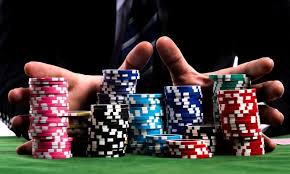
Poker is a card game where players compete against each other to see who has the best hand. The rules of the game vary, but each variant has some basic elements in common. Typically, each player begins the hand with an ante (a small amount of money, usually a nickel).
If a player does not make a bet, they are called a “passive” player. If they make a bet, they are called an “active” player. Once a player is an active player, they must place their money in the pot. If the pot is too small, they can either call or fold.
The most popular form of poker is Texas Hold’Em, where players are dealt two cards and must decide whether to bet or not. There are multiple rounds of betting, and the best hand wins the pot.
A lot of people think poker is a game of luck, but it actually depends on your skill and strategy. If you can make smart decisions and play with discipline, you should be able to win consistently.
It’s a good idea to practice your skills at low limits and in games you enjoy. This will help you learn the ropes and develop a strong bankroll without risking too much money.
Poker is a mental game, so it’s important to make sure you’re not losing concentration. If you are irritated by your opponents or the board, it’s a good idea to quit the game and wait until you feel more focused again.
During the game, each player is dealt two cards, one face down and one in front of them. These cards are kept secret from everyone else. After each round of betting, the players reveal their cards and count their hand ranks.
When the dealer deals the cards, they put them into a cross layout. The top card is a “high” card, and the bottom one is a “low” card. In this way, the hand ranks are ranked from Ace to 2.
There are 10 ways to win a game of 5-card poker: High card, Pair of cards, Two pairs of cards, Three of a kind, Straight, Flush, Full house, Four of a kind, and Royal flush.
The most important thing to remember when playing poker is that you need to be able to read your opponent’s hands and make the right decision. This is especially true if you’re a beginner and you haven’t played in a while.
In order to read your opponents’ hands, you need to be able to watch their behavior. This includes their eye movements, idiosyncrasies, hand gestures and more. It’s also a good idea to study their betting patterns, as well.
You should also be able to detect when they’re playing too passively or aggressively, as this will give you clues as to how likely it is that they have a good hand. Similarly, you should be able to notice when they make a large raise or a small call and know how they react to pressure.